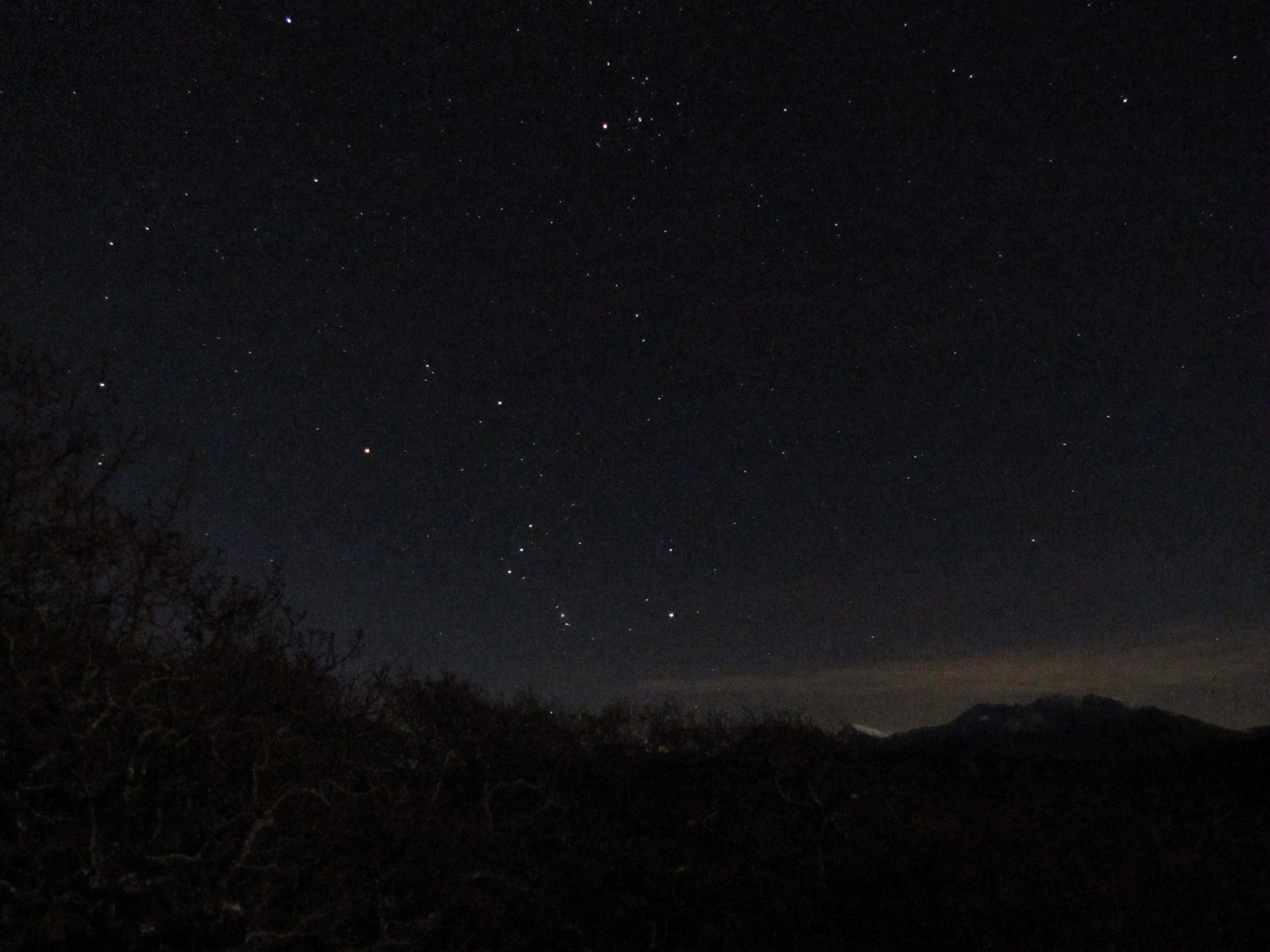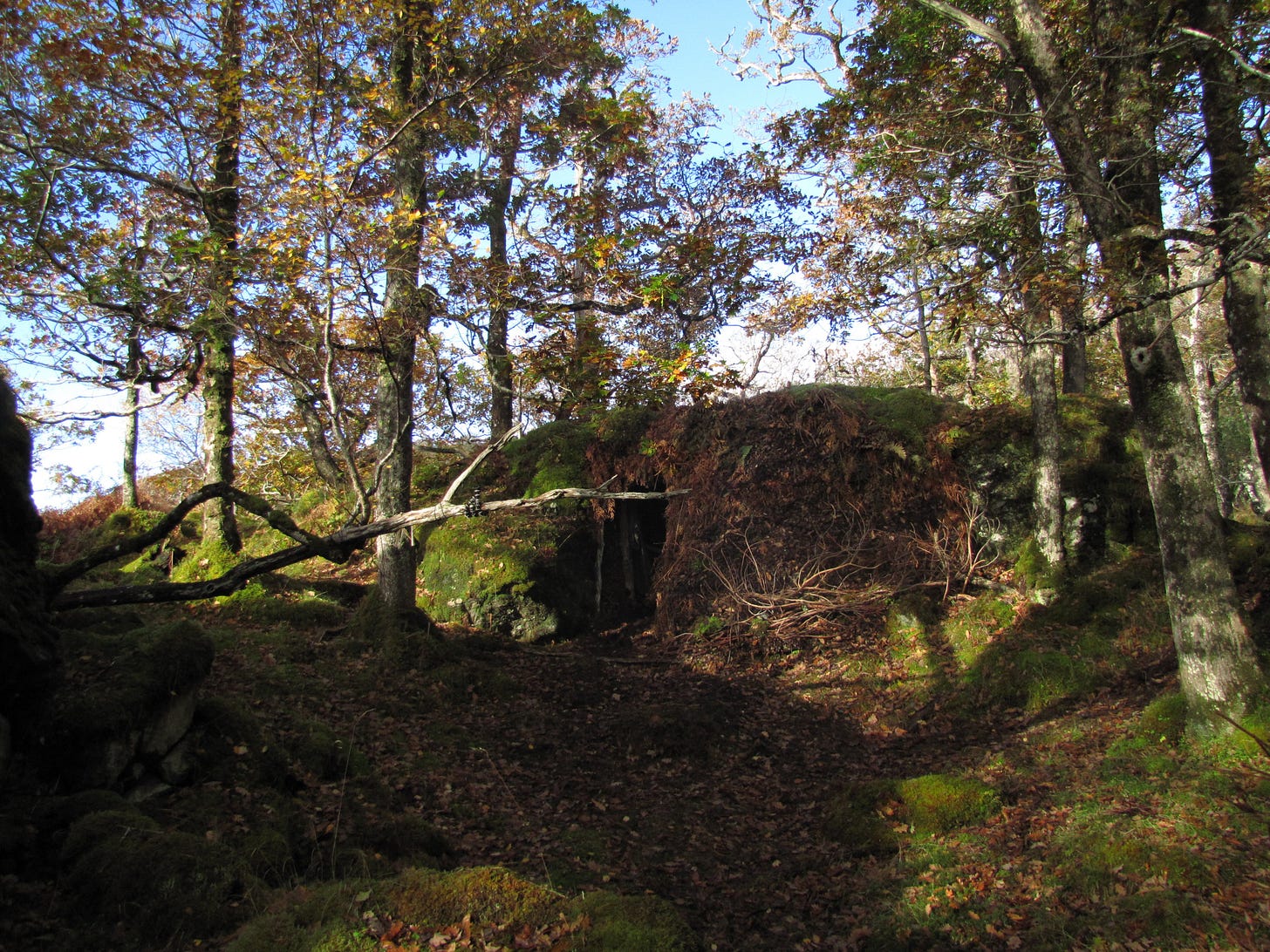Our Generations and a Stolen Birthright
AWE Season One Introduction: Nature is the key, for so many things
The Crow’s Nest: A Brief Recap
In my first post under the new name, The Crow’s Nest, I talked about the history of this letter and introduced the idea of a season of narrative non-fiction, centring on our ancient birthright: our connection to nature.
I also mentioned the separate section, Only One Death, where I will be sharing my fiction in a serialised manner. In case you missed that, the introduction to that first novella is here, and the first chapter, Eastsea, here. For now, it is free to read.
One other thing which I will again share is that, for a limited time only, you can get a 20% lifetime discount on a subscription to The Crow’s Nest, the cost of which is already set at the lowest amount possible, so that’s quite a bargain.
Finally, as I also said in that first post under this new name, you will still receive the monthly edition of The Crow’s Nest for free but, without a paid subscription, you won’t have access to anything more than a preview of the forthcoming non-fiction season after this letter, with the occasional other free essay thrown in.
Reframing Time
We as a species like to think we are special, set apart from and above nature, somehow the masters of all we see. We like to believe we control the natural, whether through intensive agricultural methods or through stripping and destroying the plant- and wild-life which tries to find a home on land we have declared our own.
We live in the here and now, often looking at what our neighbours possess, coveting more, the latest and greatest, the biggest screens, the shiniest of gadgets. Rarely do we take a step back and look at our ancestry.
Let’s consider a generation. Different definitions for this exist, some say a family generation is twenty years, others up to forty. For this reason, we will take a rough average: thirty years. This is essentially the length of time it takes babies to grow to adulthood and have children of their own.
Taking this number, the Second World War began just under three generations ago. It is four generations since Queen Victoria, ruler of the largest empire ever known, died. Go back a little further to the 1720s—for a total of just ten generations—and what is now the United States of America is still being carved up and fought over by the English, French, and Spanish, irrespective of whoever lived there before their arrival. Just ten generations.
There is an anthroplogical theory you may have heard referenced by others, Dunbar’s Number, which explores how many social connections our brain evolved to cope with. This is based on several factors, a part of which uses the idea of the band (30—50 people), cultural lineage groups (kinship is another word to describe this. 100—200 people), and a wider group determined as the tribe (500—2500 people). Dunbar’s Number itself is rounded to 150, and this represents a mean friendship group size for stable interpersonal/social relationships.
In other words, this is how many people you can actually know as friends, before things start to get difficult and negative social issues begin to intrude. You can know more people in a larger tribe, recognise more faces, but you can’t feasibly live together and in harmony all of the time.
I am using this number, and those of the band, kinship group, and tribe for a simple (and mildly contrived?!) reason—to look at how far back in our history and prehistory an equivalent number of generations will take us.
For the mean number in a band, forty people, we go back to 823AD (all dates here use the Gregorian/western calendar), for the kinship group—and Dunbar’s Number itself—of 150 people, we go back to 2477BC, for the tribe, 1500 people, 42977BC.
For context, it is commonly accepted that writing first developed around 2600BC and that modern humankind as we know it only began moving into Europe around 45000 years ago, with that wave leaving no genetic material in the European DNA today.
Our species, Homo sapiens, is probably anatomically no older than 300000 years old, and has only shown modern behavioural variability, such as symbolism, abstract thought, or dance and music, for perhaps less than half that time; according to some (arguably outdated and often Eurocentric) theories, we did not truly become modern humans until around 50000 years ago. (I personally think the evidence from Africa shows we were human long before we came to Europe, a thought increasingly the norm in anthropological and archaeological circles.)
In other words, if we were to bump into those first human migrants from Africa, 45000 years ago, that time frame only represents 1500 generations. How many friends do you have on Facebook? How many people do you follow on other social media? My guess is it might well be more than Dunbar’s number.
We are not an ancient species.
Yet most of us cannot comprehend these relatively small frames of time and, when you look at the millions and millions of years of evolution, a small frame of time it is.
Our Stolen Birthright
For nearly all of our prehistory, up until around 10000 to 12000 years ago, we were all hunter gatherers. That’s no more than 400 generations ago. There are still small and rapidly disappearing populations of hunter gatherers today.
Sadly, the vast, vast majority of us have forgotten what this means.
We have forgotten all those years of foraging, of learning what to eat, how to prepare it, of hunting and trapping, of tracking, of understanding and observing the changes of the seasons. We have forgotten what it means to be able to find clean water, or to make a fire from natural materials. We have lost the drive to learn more about our natural world because, quite simply, it is our world.
We have been robbed. The legacy of our ancestors has been destroyed and controlled and removed from our collective memories. Some of those who dealt in herbal cures, or knew why and when the weather was due to change, were accused of heresy and burnt, or murdered in a horrifically varied number of ways, deemed witches (increasingly, research shows that although some herbalists, wise-women, and other similar individuals were accused of witchcraft, often the principal thrust behind such accusations and executions came from the greed of others, usually men, who wanted to add to their land or property, or increase business revenue by removing a rival).
I would argue that it is possible we have collective race memories of when farming was taking over, of those tribes and bands who stayed true to their ancestors, pushed further and further towards the edges of the world, the more remote and inaccessible areas. They became our myths, our fairy tales, perhaps elves or trolls, creatures of the deep forest or remote mountain valleys, no longer the original humans, but something Other—something to be feared.
Systems of control, patriarchal societies, money and wealth, widespread war and non-ritualistic violence, all these things came after we stepped away from nature, named her as an enemy to fight against, rather than live with, and shunned our past, calling it primitive.
Yet perhaps we stand at a place in our history where we can look at things differently? We know, and the majority of us accept, that the world is changing fast, the climate degrading at a truly alarming rate. We know we need to reassess our relationship with nature if we as a species are to survive.
We need to reframe the language of the discussion, stop using abstract terms, and talk of the very existence of humankind. This is a fight, not against nature, but against ourselves, against our nature.
In short, if we do not change, we will die.
A Way Towards a Balanced Future?
In my humble opinion, one way we can change is to rediscover our role as a part of nature—not apart from nature. For me, this means looking at the beauty and studying the science behind everything, ranging from the rocks beneath our feet, through the plants, insects, reptiles, mammals, birds, trees—all of life—to the skies and atmosphere above. Again, for me, it also involves looking at the folklore and myth behind many things natural: often there is much to be gained from this.
In other words, we should all become naturalists (not to be confused with naturists!), but in the way our ancestors all once were.
This newsletter will endeavour to show how living a slow, intentional, creative life is perhaps the best method of reconnecting with those skills we should never have forgotten. I want to show how we can visit or live in what are now called wild places but, not that many generations ago—and for tens of thousands of years—simply known as home. (This is not to romanticise how hard a hunter gatherer lifepath can be, I will demonstrate this too.)
I want to remove the idea of indoors versus outdoors, the outside as something other and frightening, man vs wild; I want to be able to demonstrate that knowledge truly is power and, ultimately, share with you how this process can change the very way you move, the way you look at the world, in a manner which is humbling and deeply, deeply gratifying.
For this reason, the central linking theme of the first season of The Crow’s Nest, will revolve around the word ‘respect’. These essays and thoughts will be linked by the above ideas, centred on nature and ancestral skills, with a healthy side helping of naturalist’s notes and observations.
I intend to share images alongside my writing, and also suggest questions you can ask of yourself, projects to pursue, and ways to integrate nature more deeply within your life.
In next week’s post, I shall introduce the season itself and talk about how I hope this first set of essays will provide a solid foundation for the seasons to come.
I really hope you will join me.
Finally, don’t forget the subscription discount is for a limited time only:
and do please share, if you enjoyed reading this:
or like, comment, or restack here, or via Substack Notes.
Many thanks for reading and, as ever, all photos are mine.







Yes to this! “the central linking theme of the first season of The Crow’s Nest, will revolve around the word ‘respect’. These essays and thoughts will be linked by the above ideas, centred on nature and ancestral skills” and to challenging the artificial line between inside and outside. Well met, fellow traveler!
I think I've found a kindred spirit.